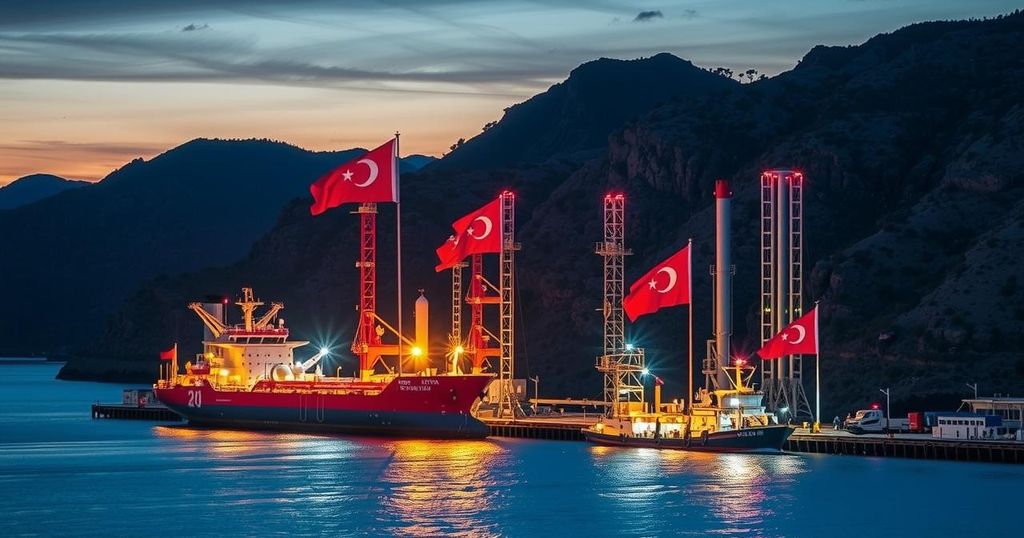Turkey aims to assist in revitalizing Syria’s oil and gas production, facing challenges due to U.S. sanctions, political changes, and halted supplies from Iran and Iraq. The potential development of new pipelines and energy projects underscores Turkey’s interest in contributing to Syria’s reconstruction amidst these challenges.
Turkey has expressed its intent to contribute to the revitalization of oil and gas production in Syria, as reported by Bloomberg. Energy Minister Alparslan Bayraktar announced Turkey’s plans to assist Syria with its electricity supply and further engage in the oil and gas sector. He stated, “We are also studying the use of crude oil and natural gas for the reconstruction of Syria.” Turkey aims to propose ways to support energy projects, which may include developing new oil and gas pipelines linking Turkey and Syria.
Syria’s oil and gas production has been severely affected by U.S. sanctions and ongoing conflicts with rebel groups. Iran and Iraq have been key suppliers, but following a recent insurgence that ousted the Assad government, oil deliveries from Iran, which previously averaged 60,000 barrels daily, have ceased. Additionally, Iraq has halted its crude oil exports to Syria, previously supplying about 120,000 barrels daily. This situation has created a significant supply issue for Syria, where domestic production stands at approximately 80,000 barrels daily, predominantly in areas controlled by the Kurdish-affiliated Syrian Democratic Forces.
The conflict complicates logistical operations, particularly as eastern Syria’s oil, controlled by the Kurdish forces, is restricted from entering other regions held by the Hay’at Tahrir al-Sham group. The dynamic political landscape and changing alliances underline the challenges in addressing Syria’s energy crisis, positioning Turkey in a potentially influential role regarding future oil production in the region.
Turkey’s involvement in Syrian oil and gas production comes at a time of heightened instability and shifting alliances within the region. U.S. sanctions have crippled Syria’s ability to maintain and expand its energy capabilities while internal conflicts further complicate production logistics. Historically, Iran and Iraq have been significant oil sources for Syria, but recent political changes have disrupted these supply lines, leading to calls for alternative partnerships, such as Turkey’s potential role in energy projects. The Syrian Democratic Forces hold key oil-producing areas, adding another layer of complexity to the issue.
In summary, Turkey’s willingness to participate in Syria’s oil and gas sector reflects its strategic interest in regional energy dynamics, particularly amid supply shortages exacerbated by internal and external pressures. As Syria navigates a precarious political landscape following the change of power, the establishment of new energy projects with Turkey may prove crucial for the country’s reconstruction efforts and overall energy stability. Continued geopolitical tensions and shifting control over oil-rich territories will likely influence future developments.
Original Source: oilprice.com






